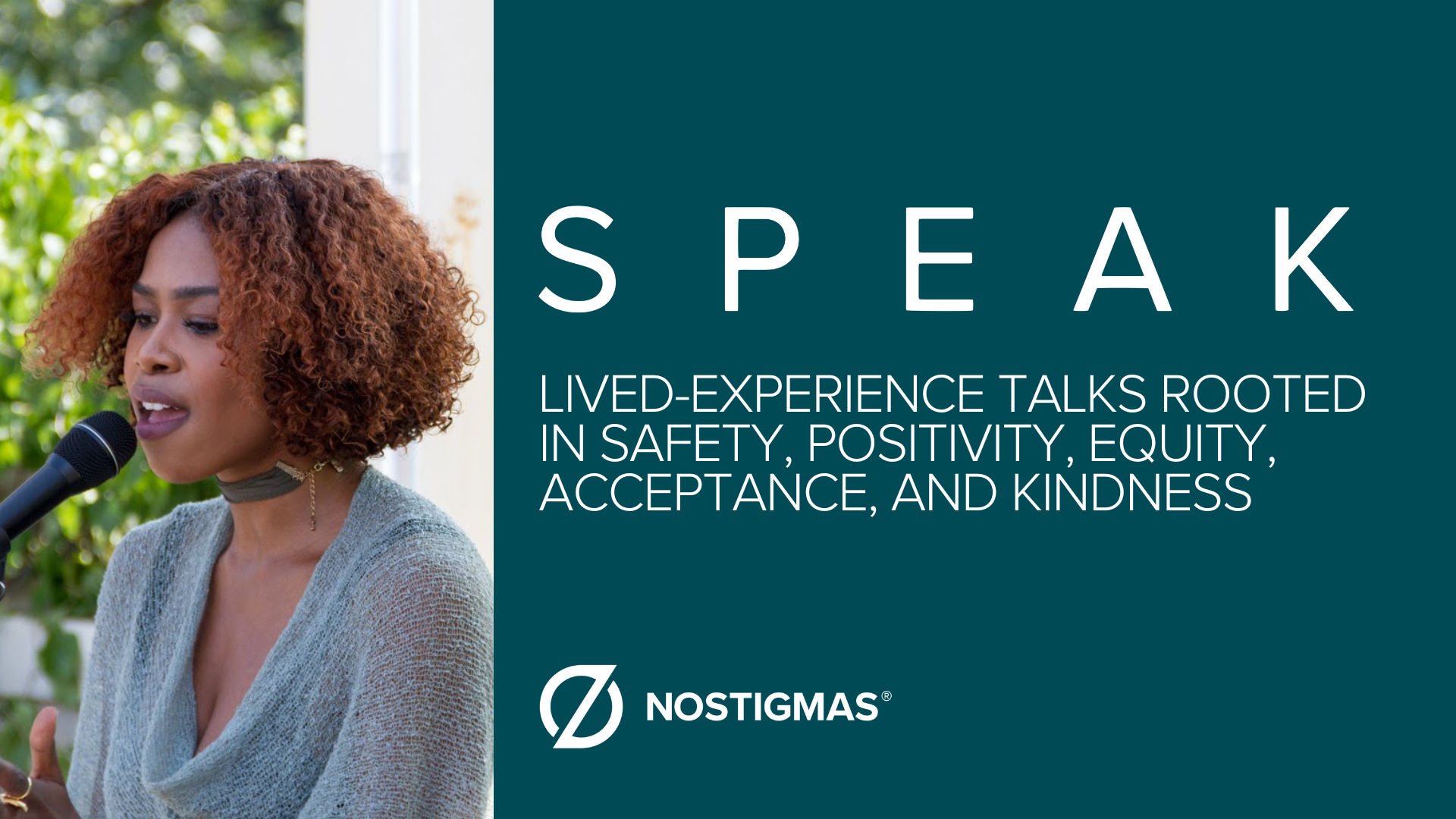It is through voices like yours that we break the stigmas surrounding those touched by suicide and mental illness. S.P.E.A.K. stands for Safety, Positivity, Equity, Acceptance, and Kindness.
These events are 15-minute lived-experience talks that contain personal examples from the speaker’s mental health journey and provide practical implications for the audience's own mental health journeys and how they can champion and advocate for others.
S.P.E.A.K. MEANS
(S) Safe: Help us make sure this space is free from bias, conflict, criticism or any other potentially threatening actions, ideas, or conversations.
(P) Positive: Mental health conversations can be tough, but by building a positive atmosphere for sharing thoughts, feelings, and stories, you can better support your community during these conversations.
(E) Equity: Mental health equity is a critical step towards changing negative attitudes about suicide awareness and mental health.
(A) Acknowledge: It’s time to accept the fact that mental health is just as important to overall health as physical health.
(K) Kindness: Kindness is a crucial key to de-stigmatizing the conversation around mental health and raising awareness about this necessary movement.
WHAT YOU’LL LEARN
Together, we will help you share your story as we guide you through the following steps.
How to Use the NoStigmas Voice
NoStigmas Checklist
How to Tell Your Story
Standard Intro/Outro
Examples of SPEAK Events
Talk Tips
How to: Marketing and Outreach
Thanking your Hosts
Post-Event Surveys
SPEAK Event Agreement
THE VOICE
Strong, clear and clean voice of a mentor. Real, conversational. Someone who “gets it”. It is unconditionally compassionate and inspires positive action. It is approachable and knowledgeable, with a sense of forward movement. The voice mirrors our core values of personal responsibility, community, and advocacy. We believe that non-stigmatizing language is essential when communicating about mental health. Because we are role models in this effort we avoid using terms like “crazy”, or “insane,” in contexts that degrade or belittle people. We also avoid using mental health terms to describe non-health related situations such as, “This weather is so bipolar.” Using people-first language helps emphasize people’s humanity. Terminology such as “He is living with schizophrenia” instead of “he is schizophrenic.” is more inclusive to our audience.


